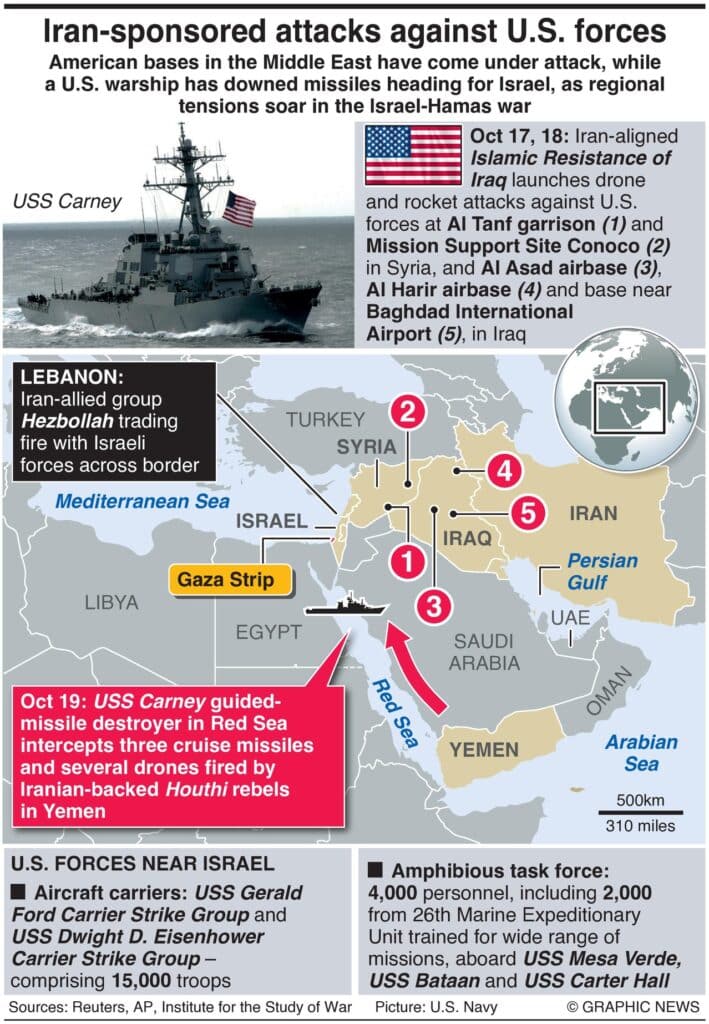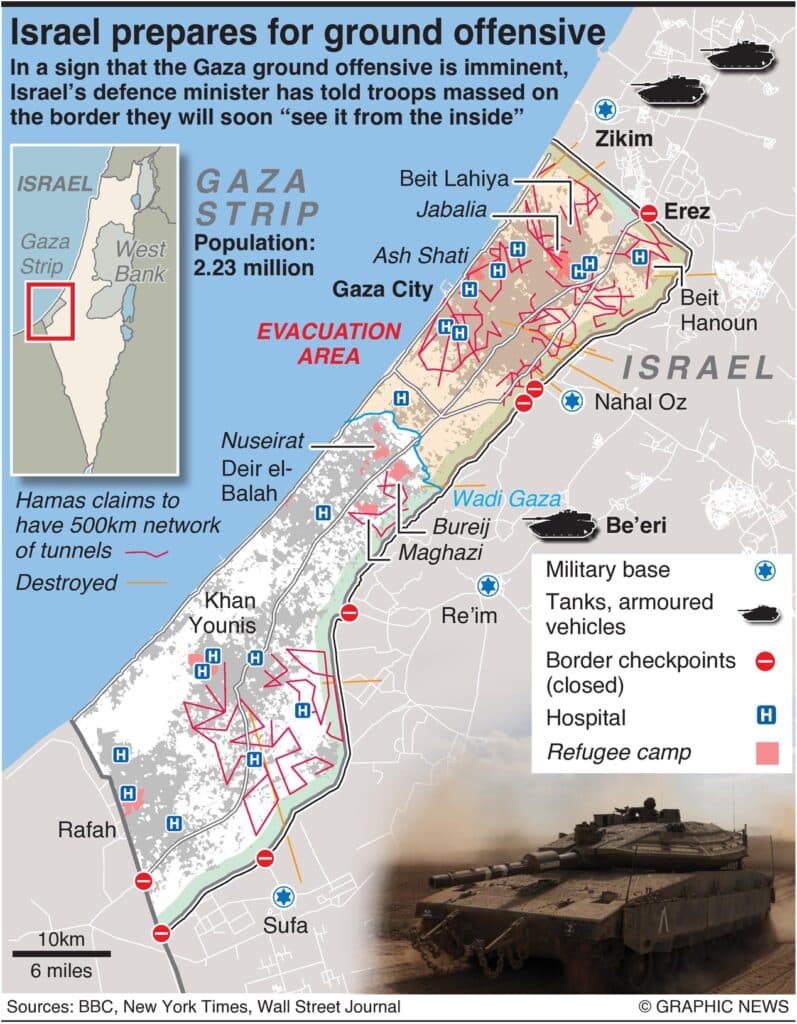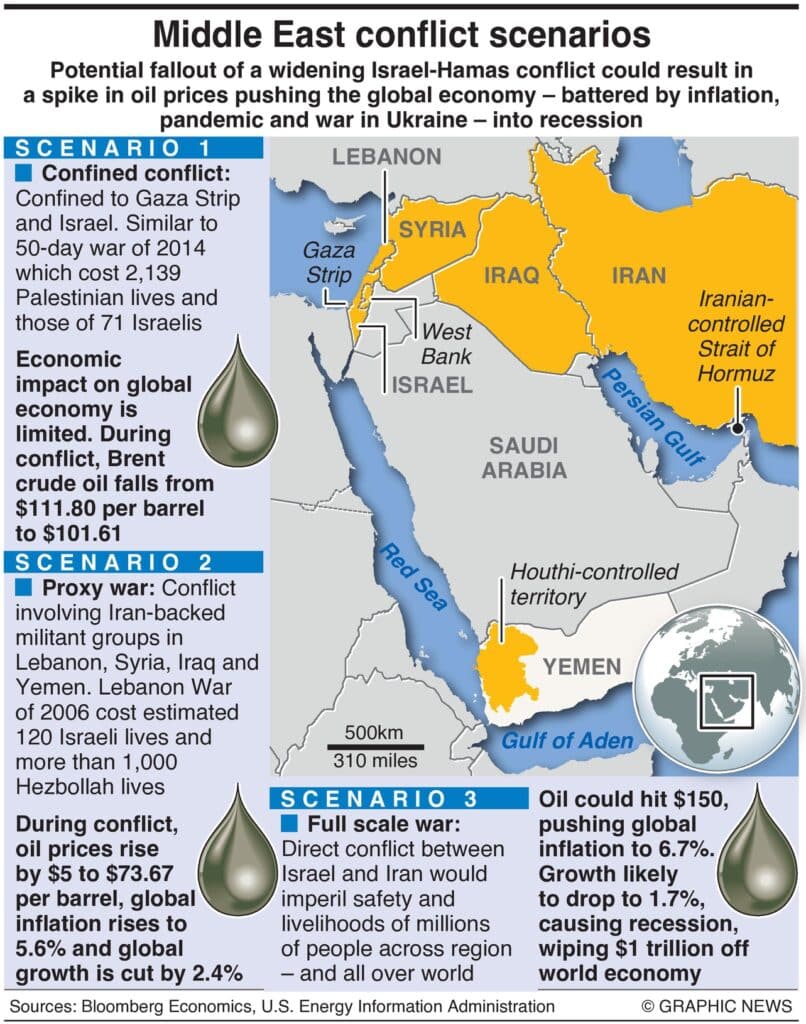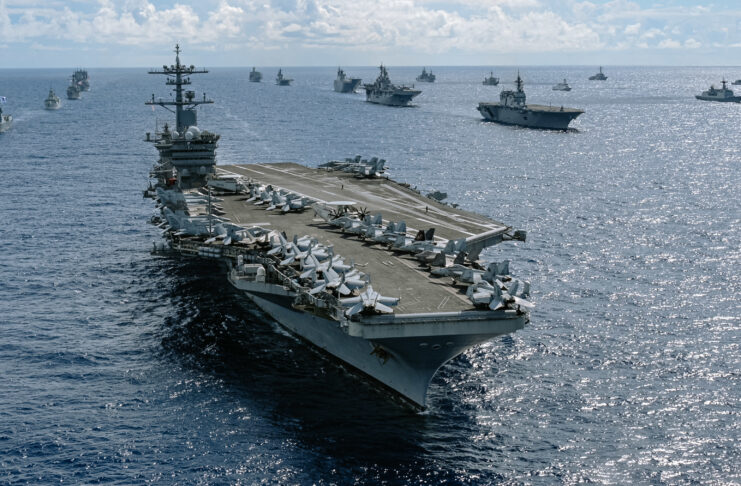ANALYSIS – Joe Biden recently returned from Israel after having what he called ‘blunt' talks with our embattled ally. Biden's visit appeared to be geared more toward pressuring Israel to allow humanitarian aid to Gaza, and to restrain itself, than to show solidarity with the Jewish state.
Biden also had a rambling, mumbling talk with reporters aboard Air Force One prior to leaving Tel Aviv.
Then on Thursday Biden gave a prime time Oval Office address where he made the case for aiding Ukraine more than for supporting Israel.
Fox News reported:
“The shame of it all is that we wouldn't be in this terrible position if Joe Biden hadn't been so weak in Afghanistan, so slow in Ukraine, so pandering to Iran, and so absent from the border,” wrote Nikki Haley, a Republican presidential candidate who is beating him in some head-to-head polls. “The world is on fire, and America needs strong new leadership to deal with it.”
Some critics called his speech “unbelievable” and “completely disgraceful.”
Meanwhile, as I reported earlier in my piece on Putin's Black Sea warning, American bases in the Middle East have come under attack from Iran-backed militias and terrorists, while a U.S. warship has downed missiles heading for Israel, a potential first for the Navy.
It is also the first U.S. military action to defend Israel in the current crisis. (RELATED: US Navy Intercepts Missiles Fired From Yemen: Report)
The USS Carney, a U.S. navy destroyer sailing in the northern Red Sea, intercepted the missiles that had been fired by Houthi forces, which have been fighting an insurgent war against Yemen's Saudi-backed regime for several years.
A Pentagon spokesman said the missiles had been launched “potentially towards targets in Israel.”
The intercepts come amid rising tensions in the region between Iran and Iranian-backed terrorists and Israel and U.S.-backed allies in the Gulf following Hamas's brutal assault on Israeli civilians.
Iranian-backed Iraqi militants conducted attacks using one-way drones and rockets against U.S. military positions in Iraq and Syria.
The U.S. has 2,500 troops in Iraq, and 900 more in neighboring Syria, on a mission to advise and assist local forces in combating Islamic State, which in 2014 seized swathes of territory in both countries.
All these areas could become new battlegrounds that could draw U.S. forces into the current conflict. (RELATED: Drones Injure US Troops In Syria Attacks)

And what is Israel's war plan?
Some have argued that Israel should refrain from a full-scale invasion of Gaza which could mire it down in bloody urban warfare against an entrenched Hamas and distract it from a potentially bigger threat coming from Hezbollah in Lebanon.
Still, in a sign that an Israeli ground offensive on Gaza is imminent, Defense Minister Yoav Gallant has told troops massed on the border they will soon “see it from the inside.”
The Israeli objectives, according to Gallant are “the elimination of Hamas and destruction of both its military and governing capabilities” and the “creation of a new security reality in the region.”
Key to achieving the former will be dealing with the network of tunnels, some 300 miles worth, according to Hamas, through which they are able to transport weapons and fighters throughout the territory and possibly into Israel itself.
This will require some sort of ground offensive.

So, what are some war scenarios we could soon see unfold? And what could be the major ripple effects?
In my view, and according to a Bloomberg Originals mini-documentary, “Middle East Shockwave,” an escalation could bring Israel into direct conflict with Iran – the primary backer and supplier of arms and funds to Hamas, which the U.S. and the European Union have designated a terrorist group.
That would be the worst-case scenario and entails full-scale war directly between a nuclear armed Israel and Iran. This would invariably draw in the United States, and clearly has the highest potential for some sort of nuclear escalation. (RELATED: White House Warns Lawmakers Another Mideast Country May Soon Face Invasion)
In that scenario, Bloomberg Economics estimates oil prices could soar to $150 a barrel and global growth drop to 1.7% – a recession that could wipe about $1 trillion off world output.
This is a very ugly possibility.
A second scenario, a proxy war, could see Lebanon's Iran-backed Hezbollah – which has already exchanged fire with Israeli forces on the border – and militias in Syria, Iraq and Yemen joining the conflict.
As I wrote about here, a two-front war would also be very bad for Israel and the Palestinians and could still escalate.
Israel appears to be readying for a possible fight with Hezbollah.
Most ‘ideal,' and probably least likely, is that the conflict remains confined to the Gaza Strip and Israel. In this way it might resemble the 50-day war of 2014, but the current conflict has already surpassed that war in casualties by a huge number in about two weeks.

Meanwhile, the large U.S. show of force in the eastern Mediterranean with two carrier strike groups and a Marine Expeditionary Unit (MEU) task force, along with the recent downing by the Navy of rockets headed toward Israel is intended to deter Iran from getting involved directly.
It also has the added goal of reassuring Israel that the U.S. has its back, and it won't need to resort to nukes.
But Iran and its Islamist terror puppets may see Joe Biden, who has bent over backwards to aid and appease Iran, as the weak link; a befuddled, aging leader unwilling or unable to respond forcefully when truly needed.
There are still too many variables to know what will happen, but we may see which way things are headed very soon.
The opinions expressed in this article are those of the author and do not necessarily reflect the positions of American Liberty News.
READ NEXT: Notorious American Soldier Will Finally Be Brought To Justice


